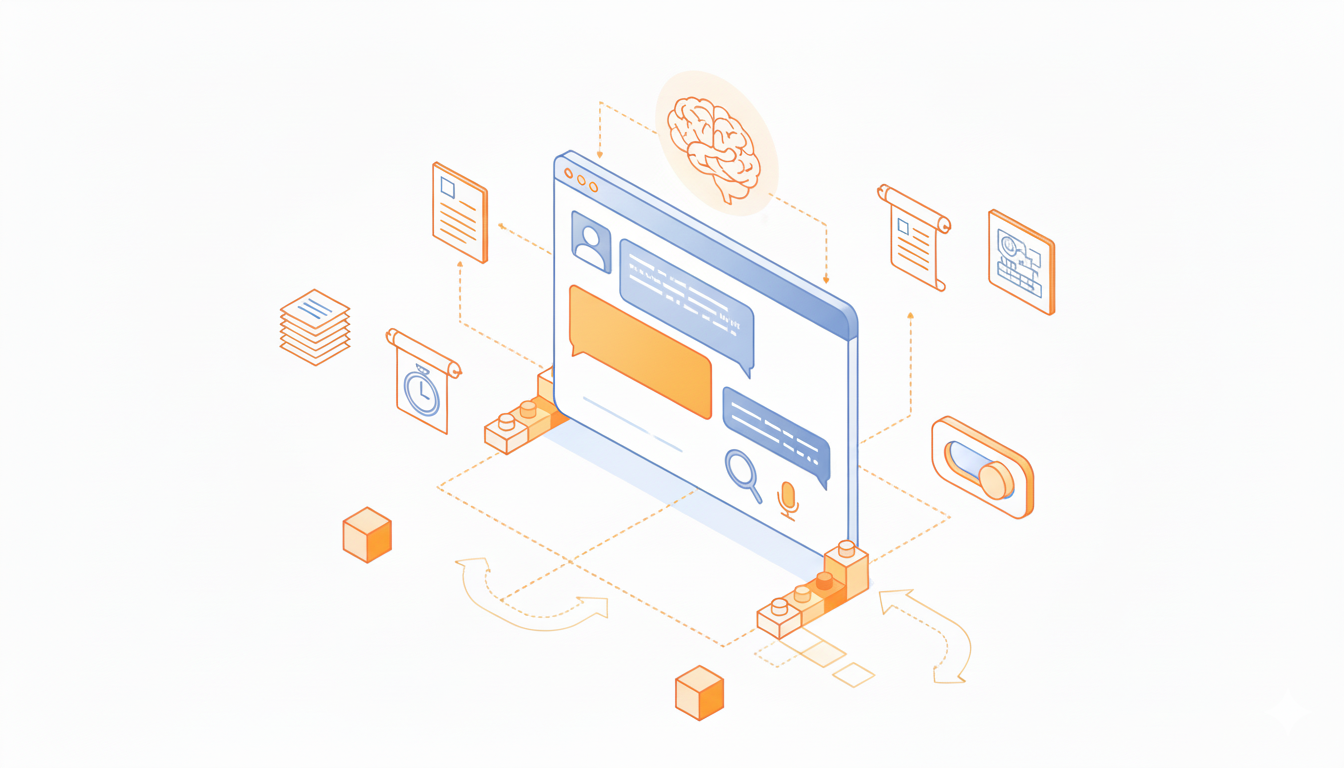Deskless workers, such as field technicians, service engineers, and factory operators, are the backbone of industrial and service operations. However, studies show that they spend nearly 20% of their work time searching for information instead of performing essential tasks.¹
For organizations in manufacturing, logistics, and field service, inefficient knowledge access leads to:
❌ Delayed repairs and service requests
❌ Increased operational downtime
❌ Loss of critical expertise due to retiring workers
❌ Inconsistencies in documentation and compliance risks
An AI-powered knowledge assistant eliminates these challenges by delivering the right information at the right time without requiring workers to sift through outdated manuals or databases.
Is your company struggling with knowledge access? Here are five clear signs it’s time to adopt AI-driven assistance.
📢 Get access to our 2025 industry report for a detailed breakdown of the hidden cost of knowledge loss across various industries. 📢
1. Your Workers Waste Too Much Time Searching for Information
📌 The problem:
Studies show that 45% of workers in industrial settings cite "difficulty finding the right information" as a top productivity barrier.² Whether it's a technician looking for repair instructions or a factory worker needing compliance documentation, slow access to knowledge causes operational delays and frustration.
📌 The solution:
With AI-powered data tagging and smart search, AI assistants analyze historical queries, user roles, and contextual data to anticipate what workers need before they even ask. Instead of endless searching, AI provides instant, relevant answers, cutting search time from hours to seconds.
Example:
An automotive supplier in Germany could be losing valuable productivity as workers spend an average of 25 minutes per shift searching for technical manuals. By implementing an AI-powered knowledge assistant, the company could reduce search times by 70%, potentially leading to an annual productivity boost worth €1.2 million.
2. Critical Knowledge Is Lost When Experienced Employees Leave
📌 The problem:
Aging workforces pose a serious risk to knowledge retention. In Germany, 35% of skilled industrial workers will retire by 2035,³ yet much of their expertise is undocumented and informal, leaving companies vulnerable to knowledge gaps.
📌 The solution:
With voice-based knowledge capture, experienced employees can document best practices simply by speaking. AI automatically transcribes, structures, and translates these insights into usable guides, ensuring that valuable expertise is preserved and shared.
At Knowron, we have developed an efficient voice-based capture for field workers that is already saving them multiple hours in documentation. See how it works
Example:
As experienced experts retire, mechanical engineering firms in Germany risk losing critical troubleshooting knowledge. By adopting AI-powered voice capture, companies could document and retain essential expertise, potentially reducing onboarding time for new hires by 40% and ensuring a smoother transition for new employees.
3. Your Teams Struggle with Outdated or Inconsistent Documentation
📌 The problem:
Research indicates that over 50% of manufacturing organizations struggle with version control issues in documentation, leading to outdated or incorrect information being used on the factory floor.⁴
📌 The solution:
AI assistants automatically update, tag, and organize documents, ensuring that employees always have access to the latest, most relevant information.
Example:
Aerospace manufacturers managing 20,000+ technical documents often struggle with fragmented knowledge storage. By leveraging an AI-powered knowledge system, they could achieve 35% faster document retrieval and reduce compliance-related errors by 60%, improving operational efficiency and regulatory adherence.
4. Your Company Faces Costly Delays Due to Slow Knowledge Access
📌 The problem:
For service organizations, every minute of downtime translates into lost revenue. Studies show that unplanned downtime in manufacturing costs companies an average of €260,000 per hour.⁵ Many delays are caused by workers lacking instant access to troubleshooting guides or technical knowledge.
📌 The solution:
AI-driven knowledge assistants surface proactive recommendations and integrate with real-time digital twins, helping workers monitor equipment, predict issues, and find solutions faster.
Example:
For logistics and manufacturing companies, equipment failures can lead to substantial financial losses. By integrating an AI-powered assistant, businesses might reduce downtime-related losses by €1.8 million annually through instant access to predictive maintenance insights, helping avoid costly disruptions.
5. Your Workforce Needs Multilingual Knowledge Access
📌 The problem:
Germany’s industrial workforce is becoming increasingly multilingual, with over 30% of manufacturing workers being foreign-born.⁶ Yet, technical manuals and compliance documents often exist only in German, creating accessibility challenges for non-native speakers.
📌 The solution:
AI-powered knowledge assistants automatically translate and adapt documentation, ensuring that workers receive accurate information in their preferred language, reducing errors and increasing efficiency.
Example:
Companies operating across multilingual regions like Poland and Hungary often face delays in equipment maintenance due to language barriers. By implementing an AI-driven multilingual support system, organizations could cut service request resolution times by 50%, improving efficiency and reducing costly miscommunications.
Future-Proof Your Workforce with AI-Powered Knowledge
If your organization struggles with slow search times, lost knowledge, outdated documentation, costly delays, or multilingual challenges, it’s time to consider an AI-powered knowledge assistant.
✅ Reduce search time by up to 80%
✅ Preserve critical knowledge before experts retire
✅ Ensure always-up-to-date documentation
✅ Prevent costly downtime with real-time insights
✅ Support a multilingual workforce seamlessly
💡 Want to see how an AI-powered knowledge assistant can transform your operations? Contact us for a free demo today.
Sources:
- IDC Research, "Deskless Workforce Productivity Challenges," 2023
- McKinsey & Co., "Manufacturing Workforce Efficiency Report," 2023
- German Federal Employment Agency, "Demographic Shifts in Skilled Labor," 2024
- PwC, "Manufacturing Knowledge Management Trends," 2023
- Deloitte, "The Cost of Unplanned Downtime in Industry 4.0," 2022
- Eurostat, "Migration and Workforce in EU Manufacturing," 2023




.png)




